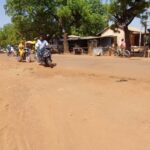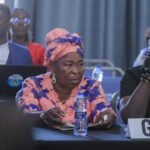Ghana has secured a US$260 million deal with the World Bank to address the US$1.2 billion losses and inefficiencies plaguing its energy sector.
The initiative, known as the Energy Sector Recovery Programme, includes a US$250 million credit for procuring one million electricity meters and a US$10 million grant for promoting clean cooking. This partnership is in line with the World Bank’s Programme for Results (PforR) initiative, converging to enhance energy efficiency and operational effectiveness.
Under the terms of the agreement, the World Bank will facilitate a viable process for meter procurement. The clean cooking initiative will see an initial 20% of financing provided directly. This project is designed to meet specific performance targets, including improving the transmission of energy generation, ensuring transparency in the Cash Waterfall Mechanism, and drastically reducing revenue collection losses for the Electricity Company of Ghana (ECG).
The Finance Minister, Dr. Mohammed Amin Adam, in delivering his speech underlined the government’s commitment to transforming the energy sector to improve its financial viability.
He also highlighted the urgent need for the ECG to deal with the high electricity distribution losses and low collection rates, which have forced the government to hand out approximately GH¢18 billion to cover sector shortfalls in 2024 alone. Dr. Amin Adam said again that adherence to the cash waterfall mechanism is essential for restoring investor confidence.
“Through this project, we have an opportunity to build a robust energy infrastruc¬ture that will remain the backbone of a thriving economy. Ultimately, our objective is not to only stabilize our energy sector but also enhance the quality of life for our citizens,” he stated.
Deputy Energy Minister Collins Adomako-Mensah expressed confidence in meeting the project’s timelines and goals, stating that a dedicated team would oversee implementation.
Dr. Robert Taliercio O’Brien, the World Bank Country Director for Ghana, Liberia, and Sierra Leone, stressed the importance of the program for improving energy sector efficiency and financial performance, noting the alarming shortfalls that exceed typical annual disbursements from the Bank to Ghana.
The financing structure is particularly notable as it bonds funding to performance outcomes. Mr. Asjish Khanna, the World Bank’s Protective Manager for West and Central Africa Energy, explained that funds will only be paid out upon achieving specific results, such as reduced collection losses.
This approach aims to ensure that the ECG works more efficiently, eventually enhancing service delivery and stabilizing the energy sector, therefore improving the quality of life for Ghanaians.
Source: Ghana/Starrfm.com.gh/103.5FM/Jasmine Adjei Anyetei




